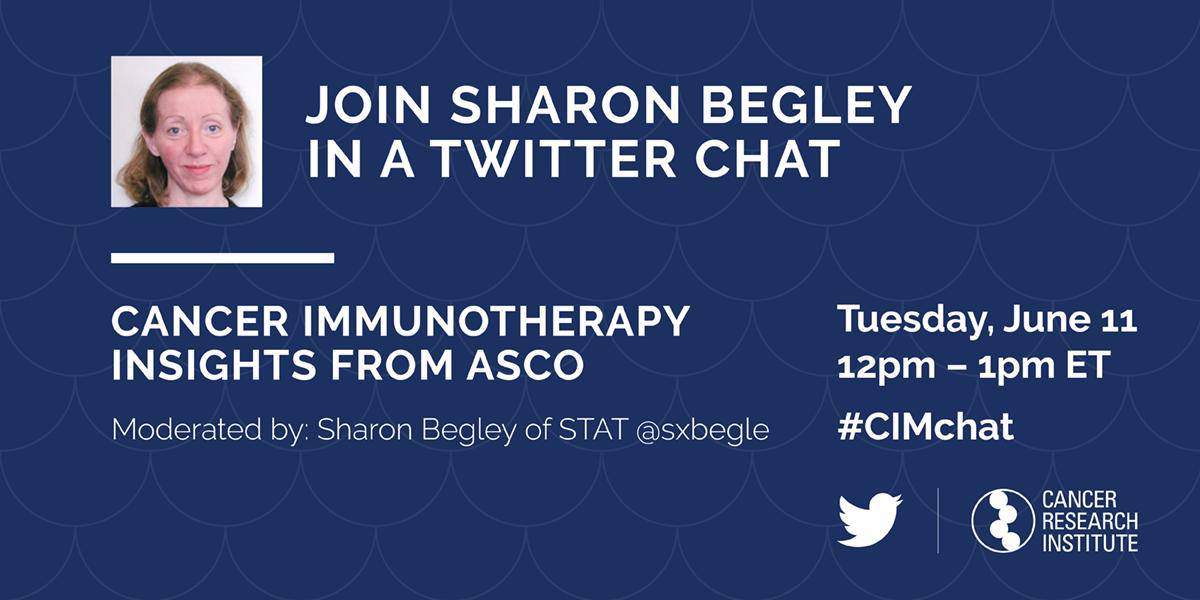During the morning of the final day of ASCO19 in Chicago, Prasad S. Adusumilli, M.D., of Memorial Sloan Kettering Cancer Center (MSKCC), highlighted work led by MSKCC’s Michel Sadelain, MD, PhD, a member of the CRI Clinical Accelerator Leadership. In a Phase 1 trial (NCT02414269), they used CAR T cells for patients with cancers in the chest cavity (pleural cancers), which affect 150,000 people each year in the United States. These CAR T cells were delivered regionally and targeted mesothelin, a tumor antigen that is expressed in 85-90% of cases of mesothelioma, and in significant percentages of many other types of solid cancers.
In all, 27 patients were treated with CAR T cells, including 22 patients who received the cellular therapy in combination with PD-1 checkpoint immunotherapy (pembrolizumab). Thus far, 63% of patients have responded, including three whose tumors were completely eliminated. Incredibly, the CAR T cells, which could be detected in patients’ peripheral blood for up to 42 weeks, didn’t appear to cause any toxicity higher than grade 1, likely owing to their fully human design and the regional delivery method.
One of the final sessions at ASCO19 focused exclusively on melanoma and dealt with using immunotherapy to treat the disease at various stages.
With respect to stage 4 metastatic melanoma, Hussein Abdul-Hassan Tawbi, MD, PhD, of the University of Texas MD Anderson Cancer Center, discussed a Phase 2 trial (NCT02320058) involving two CRI Clinical Accelerator grantees: David A. Reardon, MD, of the Dana-Farber Cancer Institute, and F. Stephen Hodi, MD, of the Dana-Farber Cancer Institute and Harvard Medical School, who also serves as a member of the CRI Clinical Accelerator Leadership.
In this trial, melanoma patients whose disease had spread to the brain were treated with dual PD-1 (nivolumab) and CTLA-4 (ipilimumab) checkpoint immunotherapy, followed by PD-1 immunotherapy alone. Of patients whose metastatic lesions weren’t active, 54% responded, and 63% remained progression-free at the six-month mark; more than half of all patients are still alive with a median follow-up of almost 21 months. Of the patients whose metastatic tumors were symptomatic, only 22% responded, although half of them had their tumors completely disappear. Sixty-six percent of the patients in this group survived at least six months, and half the patients survived at least 8.7 months.
Carina Owen, M.B.B.S., of the Melanoma Institute Australia, discussed work led by CRI Clinical Team Leader Georgina V. Long, MD, PhD, that looked at stage 3-4 melanoma patients from 16 different institutions who, after their tumors were removed surgically, were treated with PD-1 immunotherapy (nivolumab) to prevent recurrence. Of the more than 800 patients examined, 83% have not had their tumors come back. Among those who experienced recurrence while still undergoing treatment, a change in treatment was recommended. Among those who experienced recurrence after their treatment ended, there were responses seen after re-treatment with PD-1 immunotherapy alone and in combination with CTLA-4 immunotherapy as well as further treatment with targeted therapy against BRAF/MEK.
Next, Alexander M. Menzies, M.B.B.S., PhD, of the Melanoma Institute Australia and University of Sydney, discussed work involving Long and her colleague, CRI Clinical Team Leader Richard A. Scolyer, MD Together, they looked at six trials in which patients with stage 3 melanoma were treated prior to surgery with either PD-1 immunotherapy (nivolumab) or targeted therapy against BRAF/MEK. Of the 184 patients analyzed, 41% had pathological complete responses—meaning that less than 10% of their tumors remained viable prior to surgery. Overall, 65% remained relapse-free for at least two years, including 83% of those who were treated with immunotherapy. Of the immunotherapy-treated patients who had pathological complete responses, none have had a recurrence to date.
Lastly, Ahmad A. Tarhini, MD, PhD, of Emory University and Winship Cancer Institute, discussed a Phase 3 trial (NCT01274338) that was led by CRI Scientific Advisory Council member and CRI Clinical Team Leader John M. Kirkwood, MD, of the University of Pittsburgh Medical Center. The trial also involved Hodi as well as CRI Clinical Accelerator grantee Henry Koon, MD, of University Hospitals Cleveland Medical Center.
In this trial, more than 1,000 patients with high-risk, stage 3-4 melanoma that was removed surgically were subsequently treated with CTLA-4 checkpoint immunotherapy (ipilimumab, at one of two dose levels) or interferon-α2b. Compared to the interferon treatment, the lower dose of CTLA-4 immunotherapy was associated with a 22% reduction in the risk of death and a 15% reduction in the risk of recurrence, performing slightly better than the higher dose of ipilimumab while resulting in less toxicity and allowing more patients to complete their treatment regimen.
That’s it for ASCO19! In the coming days, be sure to look out for our overall recap of ASCO19, which will highlight how all of the results unveiled at the world’s largest clinical cancer conference impact the current landscape of treatment for a variety of cancer types.
We also have many more events scheduled throughout the remained of Cancer Immunotherapy Month. In particular, remember to join our “Cancer Immunotherapy Insights from ASCO” Twitter chat (#CIMchat) on June 11, at 12pm ET, moderated by Sharon Begley, senior science writer at STAT.


